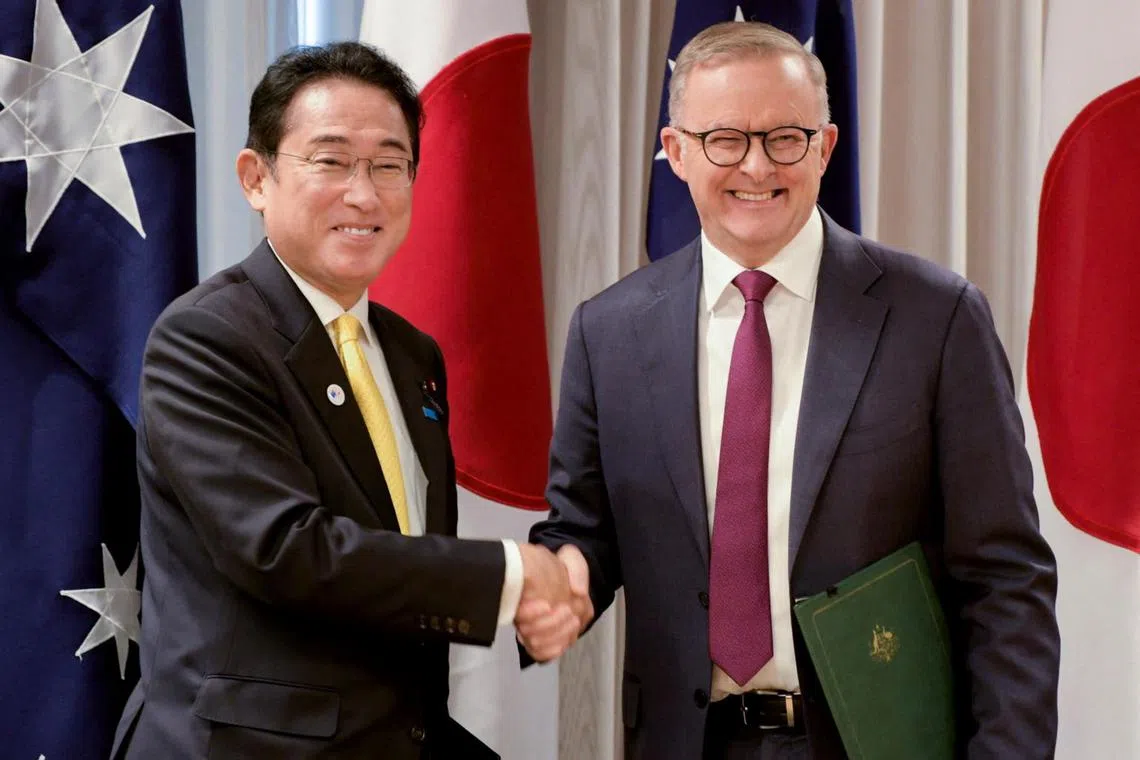For subscribers
By Invitation
Australia-Japan strategic security ties rest on fragile foundations
Both share a fear of China but Canberra should not pin too much hope on Tokyo in its search for powerful friends
Sign up now: Get ST's newsletters delivered to your inbox

Japanese PM Fumio Kishida and his Australian counterpart Anthony Albanese signed a revised Joint Declaration on Security Cooperation in Perth, on Oct 22, 2022.
PHOTO: REUTERS
Japan and Australia have taken a small but apparently momentous step towards becoming fully-fledged strategic allies. In late October, Australia’s Prime Minister Anthony Albanese and his Japanese counterpart Fumio Kishida signed in Perth a revised Joint Declaration on Security Cooperation.
That language might seem innocuous enough, but it is seen in Canberra to carry a lot of diplomatic and strategic weight. That is because similar formulations, containing similar commitments to “consult”, are a central element of many formal defence alliance treaties. The Australia, New Zealand, United States Security Treaty (Anzus) – Australia’s alliance with America – for example, commits the parties to “consult together whenever in the opinion of any of them the territorial integrity, political independence or security of any of the parties is threatened…”



